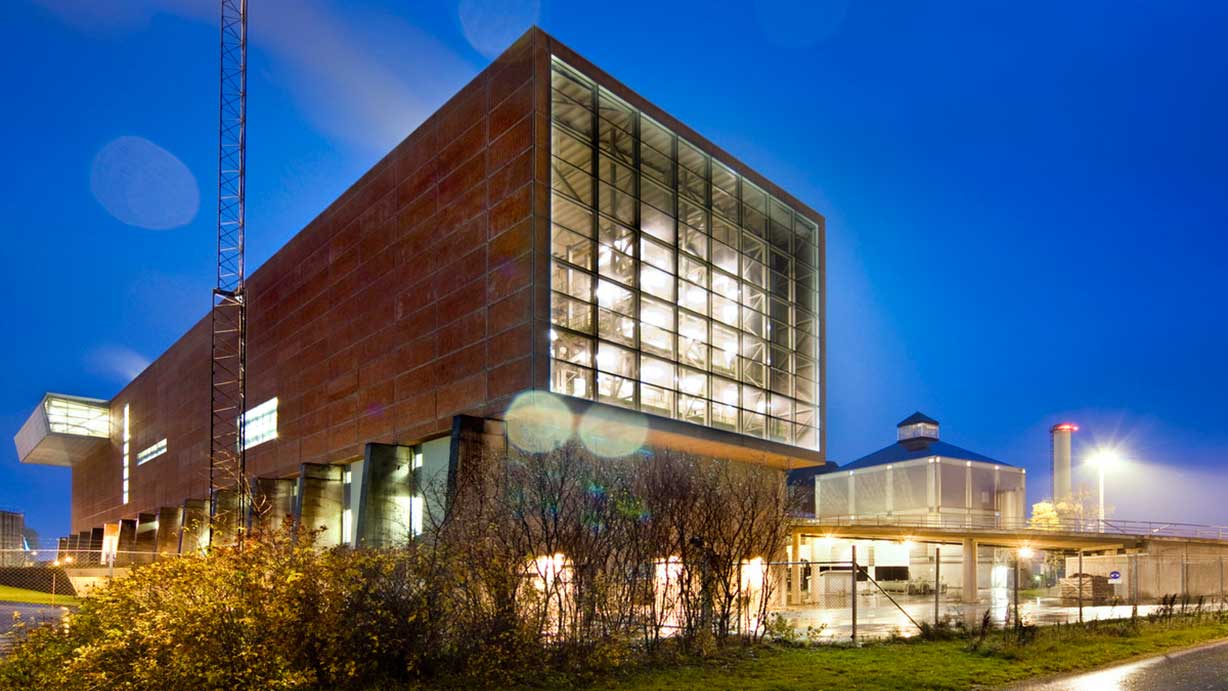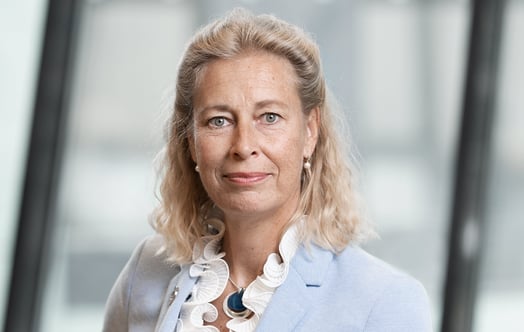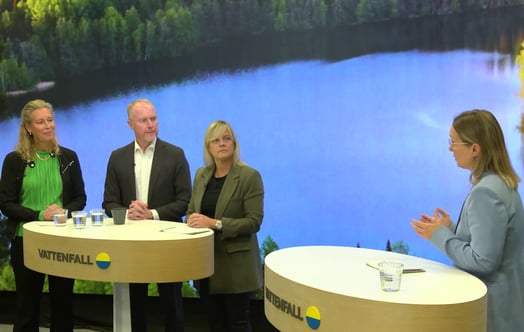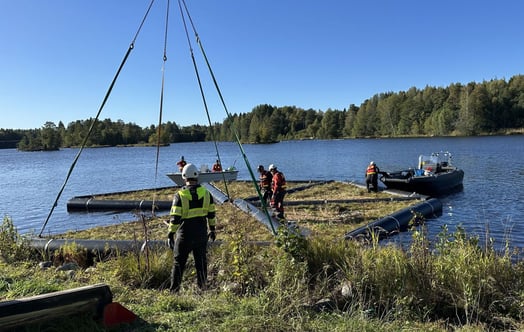Vattenfall’s production now environmentally certified
Environmental work is strengthened as almost 100 per cent of Vattenfall's electricity- and heat-generating facilities are now covered by certified environmental management systems.

From 2012 to 2016, the number of electricity- and heat-generating facilities covered by environmental management systems increased by 53 and 69 per cent, respectively. The result is that by the beginning of 2017, 99.7 per cent of Vattenfall's electricity production and 97.9 per cent of its heat-production facilities have an official certificate to document their environmental work.
In the long run this will reduce environmental risks and help reduce Vattenfall's environmental impact.
"It was a rather bold move when the Executive  Group Management in 2014 committed themselves to implement certified environmental management systems that should cover all the company's production facilities by 2016. A review in 2012 revealed that some parts of the organisation was already covered by certified environmental management systems and some parts didn't have any systematics at all. So reaching almost 100 per cent for all electricity- and heat-production facilities since then is a huge accomplishment. It can be ascribed not least to the many colleagues in the production facilities who have engaged themselves strongly in the implementation", says Helle Herk-Hansen, Vattenfall's Head of Environment.
Group Management in 2014 committed themselves to implement certified environmental management systems that should cover all the company's production facilities by 2016. A review in 2012 revealed that some parts of the organisation was already covered by certified environmental management systems and some parts didn't have any systematics at all. So reaching almost 100 per cent for all electricity- and heat-production facilities since then is a huge accomplishment. It can be ascribed not least to the many colleagues in the production facilities who have engaged themselves strongly in the implementation", says Helle Herk-Hansen, Vattenfall's Head of Environment.
Why an environmental management system?
An environmental management system is a collection of policies and procedures designed to ensure that the company has control of, is aware of and continuously improves its environmental performance. It provides better control of use, storage and disposal of materials, resources and chemicals. Clear processes make work more efficient and structured and may for instance help prevent unintended leakage of oil and other chemicals that - besides the negative effect on the environment - can result in significant costs.
"The system, which must be firmly anchored within management, ensures that we always comply with current legislation and obligations, but also that we push ourselves to environmental improvements through target setting," says Herk-Hansen.
Vattenfall has decided to get its environmental management systems certified according to ISO 14001 and verified by external, certified auditors. This way the company allows a third party onto its premises to review the environmental work. The auditors are free to decide what to review and what documentation to inspect.
"The reason is that it is easy to get tunnel vision when you have worked with the same areas day-after-day for several years. Fresh, experienced external eyes can often challenge ways of working and pinpoint potential areas for improvement thus improving the environmental performance. Allowing a third party to scrutinize the organisation adds trustworthiness and credibility to our work," Herk-Hansen explains
Increasing demand from customers and authorities for certified documentation
Credibility is of growing importance as environmental work becomes more and more critical for the business and a good environment management system can be a competitive weapon.
"We experience that an increasing number of customers, investors and partners ask for documentation for our environmental performance in connection with business deals and partnerships. Also international market research and rating institutes that assist investors and customers, look into our environmental and social work, and for them as well as public authorities, an ISO14001 certification increases trust and credibility and makes documentation easily accessible", Herk-Hansen explains.
" I am proud of all the efforts put into achieving this common target. The efforts will benefit Vattenfall's environmental work, but also the way we are perceived by our most important stakeholders. Now, each part of the business will continue to work on improvements and on becoming better at setting long-term targets, so that Vattenfall can reduce its environmental footprint per kWh and show the many good things the company does for the environment," she says.



